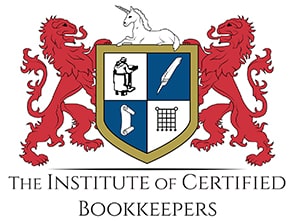Blog
Measuring the Health of Your Business with Ratios
When you’re running a business, it’s easy to get caught up in the day-to-day activity and lose sight of the big picture. Taking stock of the health of your business is important. Knowing where you are allows for more effective planning, early warning about any issues, and the chance to better chart a course for success. There are some quick
Your Employees now have the Right to Disconnect
As an employer, it’s reasonable to expect that you can occasionally contact your employees outside of normal hours. When a project deadline is near, an unexpected issue comes up, or there’s an emergency situation, out-of-hours contact is a usual expectation. But in an increasingly online world, many employees feel like they are on a ‘digital leash’, where they are contactable around
How to Handle Christmas Shutdowns
Many Australian businesses temporarily shut down at some point during the year, commonly over the Christmas-New Years period. With a bit of preparation and know-how, employers can handle the annual shutdown seamlessly and lawfully. Here are some key considerations if you are planning to shut the business for a short time: Check the clause covering shutdowns in the relevant modern
Plain English Guide to Cash Flow
What is Cashflow? Cashflow refers to the movement of money into and out of your business over a specific period. In the most basic terms, cashflow is the process of cash moving out of the business (cash outflows), and cash coming into the business (cash inflows). The ideal scenario is to be in a ‘positive cashflow position’. This means that
Super Guarantee Rate Rises in July to 11%
In July 2023, the superannuation guarantee statutory rate will rise to 11%. Annually, the rate is increasing by 0.5% until July 2025 when it will reach the legislated 12%. Prepare Now for the July Rate Rise Review your current superannuation costs for all employees, both hourly and salaried. Review any salary packaging arrangements. Is the agreement inclusive of superannuation or
Tips for Running a Small Business
Create a Business Plan Have a clear vision of what you want to achieve, the product or service you will offer, and the target market you want to serve. This will help you make informed decisions and track your progress. Manage your Finances Keep track of your income, expenses, and profit margins. Use accounting software to simplify bookkeeping and invest
Getting your Bookkeeping Ready for a Digital Future
Keeping up-to-date records of your business transactions isn’t the most glamorous part of being an entrepreneur, that’s for sure. But, in reality, having accurate and up-to-date bookkeeping is actually one of the core ways to keep your finances (and your business) under control Digital bookkeeping is the future of your finance The digital age has revolutionised the way many business
What is more important, cash flow or profit?
Cashflow and profit are two of the most important financial metrics for any business. But while they’re both related to the financial performance of a company, they measure different things. Knowing the difference – and how cash and profit contribute to your success story – is a vital skill if you want your business to have the best possible financial
Why you should invest in a bookkeeper
Investing in a bookkeeper is one of the smartest decisions a business owner can make. While many business owners try to handle their finances themselves to save money, the truth is that managing your own books can be time-consuming, confusing and complex and may ultimately be detrimental to your long-term financial growth. Here are just a few reasons why you
five signs you are undercharging
Are you undercharging for your services? It can be hard to tell, particularly if you’re in a niche industry or you’re a contractor. Costs have been rising, so it may be time to rethink your own pricing. Here are five signs that you might be undercharging: What should you be charging? Finding your pricing sweet spot could take a little



